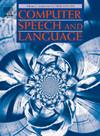基于自适应词性权重的中文命名实体识别
IF 3.1
3区 计算机科学
Q2 COMPUTER SCIENCE, ARTIFICIAL INTELLIGENCE
引用次数: 0
摘要
目前,许多研究人员使用权重来合并通过词典匹配获得的自匹配词,以提高命名实体识别(NER)的性能。然而,这些研究在计算词性权重时忽略了词与句子之间的关系,导致融合后的词信息往往与句子的原意不符。为了解决上述问题并提高预测性能,我们提出了一种用于确定词性权重的自适应词性权重方法。给定一个句子,我们利用增强的全局关注机制来计算自匹配词与句子之间的相关性,从而将注意力集中在关键词语上,而忽略不可靠的部分。实验结果表明,在 MRSA、微博和简历数据集的中文 NER 方面,我们提出的模型优于现有的一流方法。本文章由计算机程序翻译,如有差异,请以英文原文为准。
Chinese Named Entity Recognition based on adaptive lexical weights
Currently, many researchers use weights to merge self-matched words obtained through dictionary matching in order to enhance the performance of Named Entity Recognition (NER). However, these studies overlook the relationship between words and sentences when calculating lexical weights, resulting in fused word information that often does not align with the intended meaning of the sentence. Addressing above issue and enhance the prediction performance, we propose an adaptive lexical weight approach for determining lexical weights. Given a sentence, we utilize an enhanced global attention mechanism to compute the correlation between self-matching words and sentences, thereby focusing attention on crucial words while disregarding unreliable portions. Experimental results demonstrate that our proposed model outperforms existing state-of-the-art methods for Chinese NER of MRSA, Weibo, and Resume datasets.
求助全文
通过发布文献求助,成功后即可免费获取论文全文。
去求助
来源期刊

Computer Speech and Language
工程技术-计算机:人工智能
CiteScore
11.30
自引率
4.70%
发文量
80
审稿时长
22.9 weeks
期刊介绍:
Computer Speech & Language publishes reports of original research related to the recognition, understanding, production, coding and mining of speech and language.
The speech and language sciences have a long history, but it is only relatively recently that large-scale implementation of and experimentation with complex models of speech and language processing has become feasible. Such research is often carried out somewhat separately by practitioners of artificial intelligence, computer science, electronic engineering, information retrieval, linguistics, phonetics, or psychology.
 求助内容:
求助内容: 应助结果提醒方式:
应助结果提醒方式:


